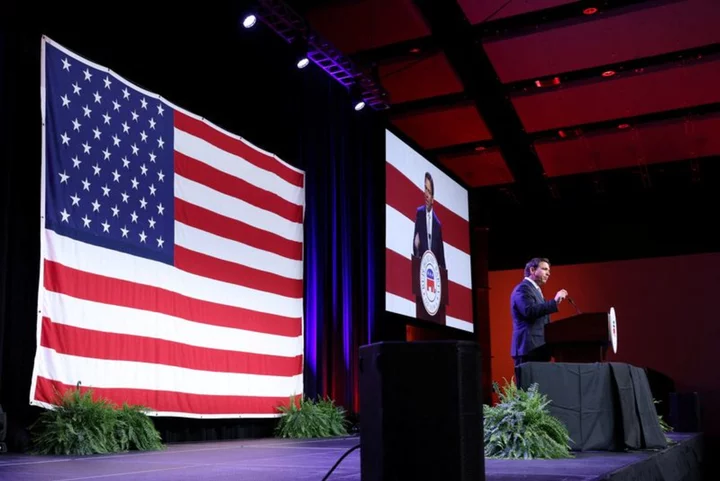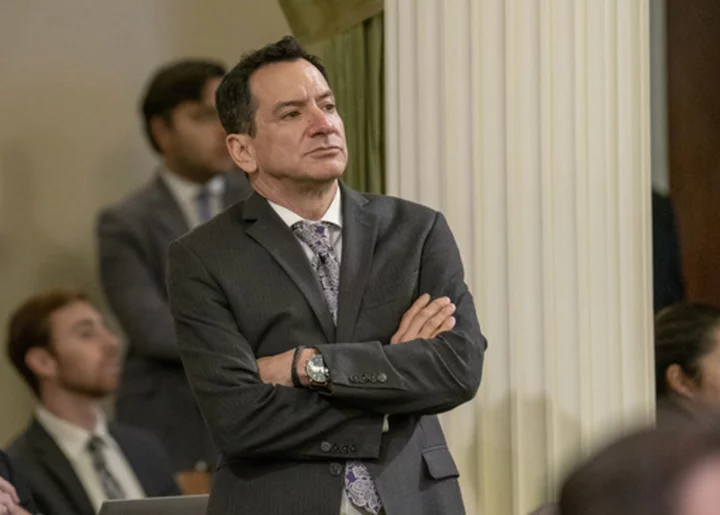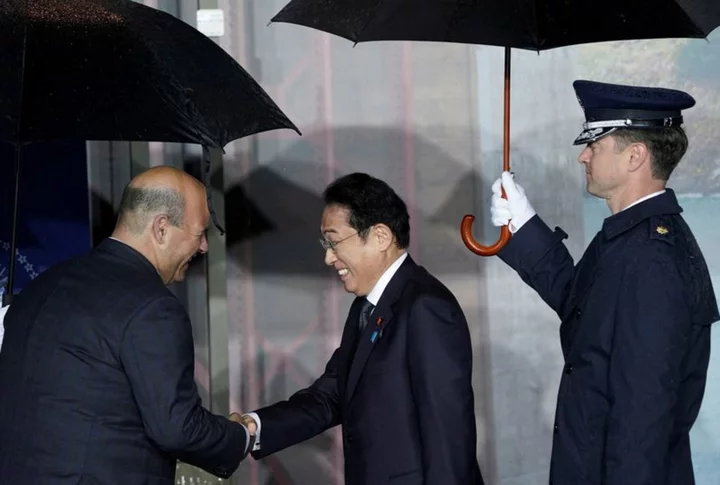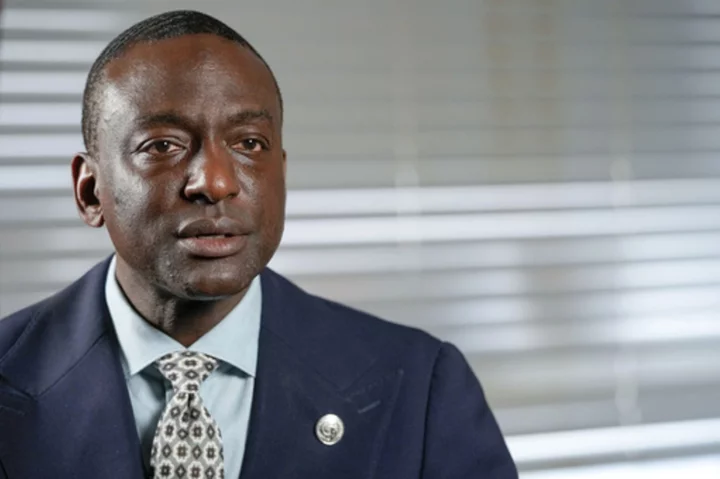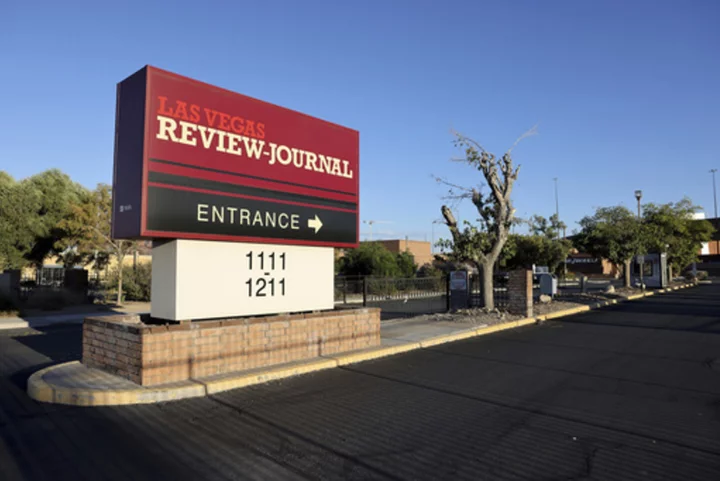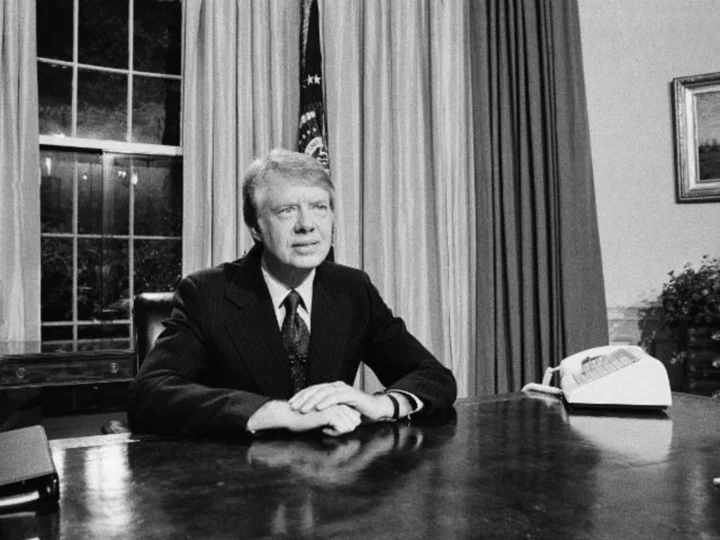By Gram Slattery, Michael Martina and David Lawder
ROCHESTER, New Hampshire At an economic policy speech on Monday, Republican presidential candidate Ron DeSantis repeatedly blamed China for sapping the United States of its financial strength, mentioning the nation no less than 11 times in 20 minutes.
It was the latest sign that China has become a dominant issue in the Republican presidential primary race at a time when the Democratic Biden administration is trying to stabilize the intense rivalry between the world's two biggest economies. China is mentioned daily at campaign stops, in digital ads and in policy speeches by the various Republican candidates.
America's "authoritarian" foe, DeSantis said, is robbing industrial secrets and stealing U.S. manufacturing jobs. To solve the problem, he would revoke permanent normal trade relations with the East Asian superpower and limit certain types of exports.
Just minutes earlier, former UN Ambassador Nikki Haley, who has made confronting China a centerpiece of her campaign, had released a plan to confront the rival nation, which she called "the most dangerous threat America has faced since World War II."
And in a Newsweek op-ed the same day, former president Donald Trump, the Republican front-runner by a large margin, accused the Justice Department of pursuing him because he was trying to "end the sellout of our country to Communist China."
The line of attack being embraced by the Republican candidates is that China is not merely a national security threat, like Russia or Iran, but also a top economic threat, and that decoupling the U.S. economy from China is key to the nation's economic health.
"They are buying up our farmland, spying on our kids and stealing our jobs," Republican Senator Tim Scott, another presidential contender, said in an ad released in July.
China has been referenced as a foe in previous elections, most notably by Trump who once in office ramped up the pressure on Beijing, adopting confrontational rhetoric and a restrictive trade stance.
In this Republican primary race, the attacks are more frequent and the proposals bolder, political operatives say, thanks to an ongoing shift in U.S. public opinion.
"Be it TikTok, spy balloons, China is now a greater economic and military threat in the eyes of the American public than it ever had been before," said Terry Sullivan, a political strategist who managed Republican Senator Marco Rubio's 2016 presidential campaign.
In addition to outdoing each other, the Republican candidates are trying to prove to the public they will be tougher than President Joe Biden, who has himself rolled out a series of new rules and orders aimed at limiting Chinese access to U.S. markets.
Some 50% of Americans identify China as the greatest threat to the United States, according to a Pew Research poll released in late July. Russia is the next greatest threat, according to 17% of respondents.
That is a major change since the last time Pew asked a similar question in 2019, when both countries were seen as similarly threatening.
POLICY PROPOSALS MEET REALITY
Among the China policies that is most embraced on the campaign trail is the idea of revoking permanent normal trade relations. That trade regime generally limits tariffs between the two nations. Haley, Trump and DeSantis have embraced the measure, while Scott has voted for such a move in Congress.
Trade analysts see the threat as serious.
But while some say it would be cataclysmic for trade relations and the U.S. economy, others wonder just how monumental it would be, given the complex web of sanctions and controls that have already been imposed by recent presidential administrations.
"In some ways, we're already there, because China no longer benefits from most favored nation tariffs," said Jamieson Greer, a trade lawyer with King and Spalding in Washington who served as chief of staff to the U.S. Trade Representative (USTR) under Trump.
One danger, said Wendy Cutler, a former high-ranking USTR official during multiple administrations, is that China would retaliate forcefully against such a move, slapping higher tariffs on U.S. farm goods and shutting U.S. companies out of its economy.
"We could lose our third largest export market," she warned.
While the Republicans candidates are unanimous in their belief that China must be confronted, they are split on whether the United States has the means to confront Russia at the same time.
DeSantis and Trump have said that continuing to support Ukraine in its bid to fend of Russia's invasion diverts valuable resources that the United States needs to confront China in the Indo-Pacific region.
Among the institutions that have lobbied the DeSantis camp to take this position is the Heritage Foundation, the biggest conservative think tank in the country, according to a person with knowledge of DeSantis' policy operation.
Haley and former vice president Mike Pence, another candidate, have reached a different conclusion. On the stump, they have said the United States must stand by Ukraine. If the United States does not confront Russia, they say, China will feel emboldened.
"Make no mistake, a win for Russia is a win for China," Haley said at a speech at the American Enterprise Institute, a conservative think tank, in June.
(Reporting by Gram Slattery, David Lawder and Michael Martina; editing by Ross Colvin and Alistair Bell)

